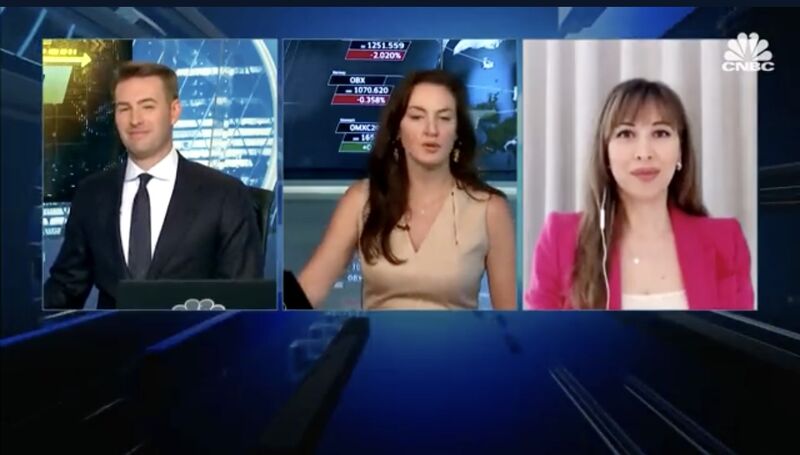In this interview with Hadley Gamble and Dan Murphy from CNBC, Dr Carole Nakhle, CEO of Crystol Energy, discusses the implications of the Russian invasion of Ukraine on energy markets.
Dr Nakhle explains that there are no immediate alternatives to Russian oil and gas exports, particularly for Europe, simply because of market mechanisms as you cannot replace one source with another very quickly. In this respect, one can understand Germany’s fear. Eventually, market dynamics will lead to additional supplies from other sources.
However, the biggest player in the market today, OPEC, is not delivering on its commitment to market stability as the group has not reacted, which could imply that it is not just about market fundamentals but because of some political factors as well.
On oil prices, which have already experienced a rally on fears of a Russian export ban, she argues that everything is possible on further price increases depending on how badly the situation escalates with Russia. But she raises the point that we should not focus only on supply. Demand destruction can have a powerful impact on markets’ ability to deal with shortages in supplies and the subsequent higher prices. The problem, though, is that by the time market observers have tangible evidence of demand destruction, it might well have happened.
Related Analysis
“A suspenseful start for oil prices in 2022“, Dr Carole Nakhle, Feb 2022
“No endgame for Ukraine“, Christof Rühl, Feb 2022
Related Comments
“Can Europe decrease its reliance on Russian gas?“, Dr Carole Nakhle, Mar 2022
“Russia, OPEC+, Europe and Energy Markets“, Dr Carole Nakhle, Mar 2022
“OPEC+ under pressure to increase output following Russia’s invasion of Ukraine“, Dr Carole Nakhle, Feb 2022
“EU Energy Policy amidst the Current Gas Crisis“, Dr Carole Nakhle, Feb 2022









